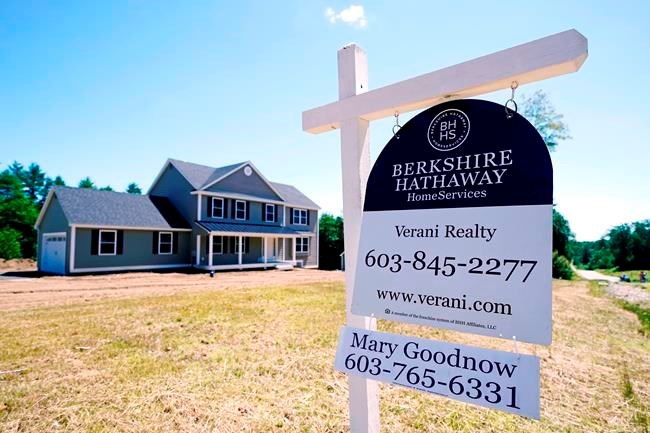Sales of previously occupied U.S. homes rose in June, snapping a four-month losing streak, while strong demand for higher-end properties and ultra-low mortgage rates helped push prices to new highs.
Existing homes sales rose 1.4% last month from May to a seasonally-adjusted annual rate of 5.86 million units, the National Association of Realtors said Thursday. That's just under the 5.9 million annual rate economists were expecting, according to FactSet.
Sales jumped 22.9% from June last year, when some states were still locked down due to the pandemic. Last month's home sales pace is ahead of the 5.7 million annual rate in February 2020, before the coronavirus led to a spring slowdown in sales last year.
The modest sales rebound last month followed a string of four monthly declines as soaring prices and a limited number of available homes on the market discouraged many would-be buyers, especially those seeking to become homeowners for the first time.
While sales of homes under $150,000 fell in June from a year earlier, buyers who purchased properties that sold for $250,000 or above helped push the median U.S. home price 23.4% higher from a year earlier to an all-time high $363,300, the NAR said.
With so few homes up for sale, it has become routine for anyone putting a house on the market to receive multiple offers that exceed the asking price, and many sell within days.
Still, there are signs the red-hot housing market is beginning to cool a bit, said Lawrence Yun, the NAR’s chief economist.
While the market remains heated, Yun said sellers are now typically receiving about four offers, down from five. Prices are still at all-time highs, but he points out that that tends to be a lagging indicator.
“Maybe we have already turned the corner from super-hot to somewhat-hot,” Yun said.
Another positive sign for would-be homebuyers: The number of homes on the market, while still down sharply from a year ago, edged up last month.
“Inventory is beginning to open up,” Yun said. “Small increments, but nonetheless, we may have turned the corner on inventory."
At the end of June, there were 1.25 million unsold homes for sale, an increase of 3.3% from May, but down 18.8% from June 2020. At the current sales pace, that amounts to a 2.6 months’ supply, the NAR said. At the end of May, unsold homes supply was at 2.5 months.
Homes typically remained on the market for 17 days in June, unchanged from May and down from 24 days a year ago.
Several trends are likely to keep the housing market competitive. Mortgage rates remain near historic lows, helping make financing more affordable. The average interest rate on a 30-year mortgage fell this week to 2.78%, according to mortgage buyer Freddie Mac. A year ago it averaged 3.01%.
More millennials are looking to become homeowners, while many Americans who’ve been able to work remotely during the pandemic are increasingly opting to move to another city or state to buy a home they can afford.
Another driver has been increased activity on Wall Street in the acquisition of single-family homes. Big institutional investors have begun to buy property and rent them out. All-cash transactions, which includes investors and wealthy buyers, made up 23% of sales in June, up from 16% a year ago.
Robust demand has also pushed up prices for new homes. New home sales fell 5.9% in May, the second monthly decline in a row, the Commerce Department reported last month. The median price of a new home sold in May jumped to $374,400, up 18.1% from a year ago.
Alex Veiga, The Associated Press




